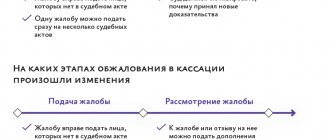1. Knowingly false denunciation of the commission of a crime is punishable by a fine in the amount of up to one hundred twenty thousand rubles, or in the amount of the wages or other income of the convicted person for a period of up to one year, or by compulsory labor for a term of up to four hundred eighty hours, or by corrective labor for a term of up to two. years, or forced labor for a term of up to two years, or arrest for a term of up to six months, or imprisonment for a term of up to two years.
2. The same act, coupled with a person being accused of committing a grave or especially grave crime, is punishable by a fine in the amount of one hundred thousand to three hundred thousand rubles, or in the amount of the wages or other income of the convicted person for a period of one to two years, or forced labor for a term of up to three years, or imprisonment for the same period.
3. Acts provided for in parts one or two of this article, combined with the artificial creation of evidence of accusation, are punishable by forced labor for a term of up to five years or imprisonment for a term of up to six years.
Compensation for moral damage for knowingly false denunciation
If the investigation establishes that the applicant actually submitted false information regarding the suspect, then he can file a claim in court for moral compensation for knowingly false denunciation.
He can set whatever amount of compensation he wants. But experts advise in this case to use the “golden” rule - the more, the better.
The judge, considering the application, will draw his conclusions and make his decision on the cost of compensation for moral damage to the suspect for false denunciation against him.
Is it possible to recover moral damages?
If the person who committed a false denunciation against you was convicted under Article 306 of the Criminal Code of the Russian Federation, you have every right to demand compensation for moral damage from him. To do this, you will need to obtain a court decision, draw up a statement of claim and submit it to the district or city court.
A decision on the case will be made within two months from the date of registration of documents.
Corpus delicti
Like all crimes covered by Article 31 of the Criminal Code of the Russian Federation, false denunciation is an act against justice. The main object of the crime is the normal work of the investigative and inquiry bodies. All false accusations lead to the fact that the natural course of the investigation is disrupted and, accordingly, the court may make an incorrect decision.
Also, an additional object of crime is the rights of the individual, his interests, honor and dignity, and often even health.
The objective side of the case and the nature of the information presented by the false informer
Denunciation is the communication to law enforcement agencies of knowingly false information about a person who has committed or is preparing a crime. The information may be completely false or partially. In this way, the informer can report a crime that was not committed, as well as distort information about the scene of the incident and slander an innocent person.
Information about a false denunciation is characterized as follows:
- The information does not correspond to reality at all;
- Contains information about the objective and subjective aspects of the crime.
Denunciation is made either in writing, or an oral statement is also allowed.
Subject and subjective side
For intentional false denunciation, liability begins at the age of 16. This act will be considered completed as soon as the person informs law enforcement agencies about a crime committed or being prepared.
The initiation of a criminal case may influence the qualification of an act when a court verdict is passed:
- The intent of a false denunciation is only direct, since the criminal deliberately informs law enforcement officers of knowingly false information and misleads the investigation;
- During the investigation, the motive of the attacker is revealed, but it will not affect the qualification of his act.
How to make a statement about false denunciation
A criminal case under Article 306 of the Criminal Code of the Russian Federation is initiated only after the innocence of the person accused on the basis of the statement has been proven.
In this case, investigators are obliged to:
- terminate the case initiated at the request of the person who reported a non-existent crime;
- initiate a new criminal case under Article 306 of the Criminal Code of the Russian Federation against the informer.
If you find out about the fact of reporting a non-existent crime committed by you, you can safely go to the investigator and write a counter-statement about a false denunciation.
The prosecutor explains criminal liability for false denunciation
Publication date: 18/08/2020 09:34
Article 306 of the Criminal Code of the Russian Federation establishes criminal liability for knowingly false denunciation of the commission of a crime. The main object of a deliberately false denunciation is the interests of justice. The interests of the individual may act as an additional direct object of this encroachment, i.e. those citizens who are unreasonably suspected of committing a crime.
The social danger of a crime is that it disrupts the normal work of law enforcement agencies involved in verifying a knowingly false report of a crime, and may lead to the unjustified initiation of a criminal case, prosecution and conviction of an innocent person. Incorrect information diverts the efforts and attention of investigative and inquiry authorities from the fight against actual crimes.
The objective side of the crime is characterized by active actions, which consist in knowingly false reporting of the commission of a crime - both about the event of the crime and about the persons who committed it.
A knowingly false denunciation can be oral, written, made over the telephone, through other persons and in other ways. It does not matter whether the informer gave his real name, deliberately changed it, or made an anonymous denunciation.
According to Part 7 of Article 141 of the Code of Criminal Procedure of the Russian Federation, anonymous statements cannot serve as a reason for initiating a criminal case. However, this rule does not mean that anonymous statements are not taken into account by law enforcement agencies at all.
Anonymous statements containing information about a crime being prepared or committed can and should be verified by the body authorized to conduct operational investigative measures, primarily by conducting appropriate public or covert operational investigative measures, based on the results of which the issue of initiating a criminal case is decided.
Thus, anonymous reports of crimes are verified; false information diverts the efforts and attention of law enforcement agencies from the fight against actual crimes, thereby violating the interests of justice. Consequently, anonymous denunciations fall under Article 306 of the Criminal Code of the Russian Federation.
A knowingly false denunciation is a completed crime from the moment the message (statement) is received by the above-mentioned bodies or their officials. The subjective side of the crime is characterized only by direct intent. The culprit is aware that he is providing law enforcement or other authorities responsible for responding to this message with false information that does not correspond to reality about the commission of a crime, and wants to commit these actions, i.e. mislead the relevant government authorities.
The motives for false denunciation in most cases are personal in nature (revenge, envy, jealousy, hostile relationships, the desire to hide the true criminal, etc.). Usually this crime is committed for the special purpose of initiating a criminal case and bringing a specific innocent person to criminal responsibility.
The subject of a false denunciation can be any sane person who has reached the age of 16 years. Knowingly false testimony by a suspect about the commission of a crime by another person, committed with the aim of avoiding criminal liability, does not form part of a knowingly false denunciation, since it is a method of defense against accusations.
Witnesses and victims who give false testimony regarding the circumstances of the case must bear criminal liability under Art. 307 of the Criminal Code of the Russian Federation. But if during the testimony they make a false statement about another crime, then their actions will constitute a knowingly false denunciation. For committing a crime under Part 1 of Article 306 of the Criminal Code of the Russian Federation, punishment may be imposed in the form of a fine in the amount of up to one hundred twenty thousand rubles or in the amount of wages or other income of the convicted person for a period of up to one year, or compulsory labor for a period of up to four hundred eighty hours, or correctional labor for a term of up to two years, or forced labor for a term of up to two years, or arrest for a term of up to six months, as well as imprisonment for a term of up to two years.
In part 2 art. 306 of the Criminal Code of the Russian Federation contains a qualifying feature - denunciation combined with accusing a person of committing a serious or especially serious crime. To impute this characteristic, it is necessary that the denunciation contain an indication of a specific person who allegedly committed this crime.
This crime is punishable by a fine in the amount of one hundred thousand to three hundred thousand rubles or in the amount of wages or other income of the convicted person for a period of one to two years, or by forced labor for a term of up to three years, or by imprisonment for the same term.
Part 3 Art. 306 of the Criminal Code of the Russian Federation provides for criminal liability for denunciation combined with the artificial creation of evidence of the accusation, i.e. for falsification, imitation of evidentiary facts that actually do not exist (for example, providing false witnesses, producing false material or written evidence), which entails punishment in the form of forced labor for up to five years or imprisonment for up to six years.
Assistant Interdistrict Prosecutor A. Miroshkin
#Prosecutor's Office informs
Examples of deliberately false denunciations of a crime
A lie can concern both the entire event of a crime, that is, a person describes those events that did not happen at all, and in the commission of an actual crime by a person who was obviously not involved in its commission.
The most often embellished stories are about losing your phone . Here the statement is accompanied by a fascinating story about theft on public transport. Law enforcement officers will still get to the truth, but the stigma of a criminal case will haunt the applicant for many more years.
Enterprising car owners also convey false facts from judicial practice. After an accident, a report about the theft of a car appears on the police desk.
Another example: citizens also contact the police to report robbery . They say that a phone was snatched on the street, a bag was stolen, etc. But during an inspection by law enforcement agencies, it is established that in fact no one stole anything, and the person himself lost his bag, phone, documents, etc.
Even if the crime was unfinished, then for false information about it the applicant may also face punishment under Art. 306 of the Criminal Code. After all, the very fact of transmitting false information distracts law enforcement officers from really important work.
Many citizens, at the stage of inspections by law enforcement agencies, realize the illegality of their actions and admit that in reality such an incident did not occur.
Reports of an act of terrorism fall into a completely different category . Such denunciation is much more serious and is also prosecuted by the Criminal Code, but under a different article - Art. 207.
If we are talking about officials who committed a false denunciation, then they will not be held accountable under Art. 306, and according to Art. 285 of the Criminal Code of the Russian Federation “Abuse of official powers”.








